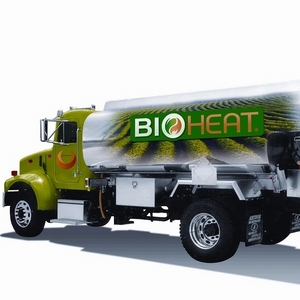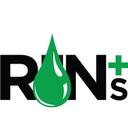ASTM releases B20 heating oil specifications

March 24, 2015
BY Ron Kotrba
ASTM International released new performance specifications March 24 for Bioheat, or heating oil blended with up to 20 percent biodiesel. The latest iteration of the ASTM heating oil specification, D396-15a, will be published soon, according to ASTM. In 2008, ASTM passed a measure allowing up to 5 percent biodiesel in the D396 fuel oil standard.
D396-15a adds parameters for stability and allows a slightly higher distillation temperature for the blends, the same changes included in the D7467 specification passed by ASTM in 2008 for on- and off-road diesel fuel blended with 6 to 20 percent biodiesel.
“The data set behind these changes is one of the most extensive I’ve seen in more than 20 years at ASTM,” said Steve Howell of M4 Consulting, an ASTM Fellow who chairs the ASTM Biodiesel Task Force.
Advertisement
Advertisement
“The technical data with this ballot for the new B6-B20 grade verified what we have known for years—that B20 made with high-quality biodiesel works well,” said Seth Obetz, president of Pennsylvania-based Bioheat distributor Worley and Obetz. “We have marketed high-quality B20 for 14 years and our customers see fewer problems with B20 than with conventional heating oil.”
“Having an official standard for higher biodiesel blends in heating oil will help foster consumer confidence, and give blenders and distributors a needed tool to incorporate more low carbon, ultra-low sulfur biodiesel into heating oil,” Howell added.
According to ASTM, the revised standard will have many benefits such as producers will know the list of properties needed to produce an acceptable fuel; marketers and dealers will better understand how to identify and purchase a quality fuel to resell to their customers; equipment companies will use the fuel properties to design and optimize equipment to burn the fuel; and customers and everyday consumers will be more empowered to buy or require high-quality fuels. In addition, customers will be able to test their purchases to ensure specification compliance.
“At the most fundamental level, production, marketing and use of any fuel begins with knowing the physical and chemical properties needed for the fuel to work as expected in the applications or equipment it is intended for,” Howell said. “This updated standard now provides that crucial information for fuel producers and sellers, equipment companies and end consumers of B6 to B20 fuel oils.”
Howell also said agencies such as the U.S. EPA and the IRS could find the revised standard valuable in regulations related to fuel quality, the environment and tax policy.
Advertisement
Advertisement
The official vote to change the standard took place at the December 2014 ASTM meeting, at which wholesale fuel provider Amerigreen reported that it has more than 100,000 B20 customers. The company said that number is growing in part because Bioheat fuel customers see less maintenance than with conventional fuel oil.
“The oilheat industry is reinventing itself as a 21st century fuel by moving to higher blends of low carbon biodiesel and ultra-low sulfur levels across the board,” said John Huber, president of the National Oilheat Research Alliance. The National Biodiesel Board and NORA have invested millions of dollars in Bioheat fuel research, outreach and education through funding provided by oilheat dealers, biodiesel producers and the soybean checkoff program.
With the accomplishment of the new B20 standard for heating oil, Howell said work is set to begin on the next level of research needed to secure official specifications for even higher blends of biodiesel in heating oil, likely extending to the use of 100 percent biodiesel—a stated goal of the oilheat industry.
“Brookhaven National Laboratory surveys of customers already using biodiesel blends not only showed similar or better experience than with traditional fuel oil, they also showed many already use B20 or higher blends with great success,” Howell said.
Related Stories
Clean Fuels Alliance America on June 10 announced the launch of the newly redesigned BQ-9000 website, delivering a streamlined and user-friendly experience that better showcases the value of biodiesel quality assurance.
The U.S. EPA on Aug. 21 released data indicating nearly 2.04 billion RINs were generated under the RFS in August, up from 1.84 billion generated in August 2022. Total RIN generation for the first eight months of the year reached nearly 15.45 billion.
WestJet Group CEO Alexis von Hoensbroech, on Sept. 19 at the World Petroleum Congress in Calgary, addressed the airline's ambitions to achieve net-zero emissions by 2050 and the vital role SAF plays in the future of decarbonizing aviation.
Clean Fuels Alliance America, American Soybean Association, National Oilseed Processors Association the U.S. Canola Association are urging the Biden administration to adopt GREET for the purposes measuring GHG reductions for the SAF tax credit.
Montana Renewables LLC, a subsidiary of Calumet Specialty Products Partners LP, on Sept. 18 hosted an event to celebrate the first receipts of camelina oil into its biorefinery in Great Falls, Montana. The facility produces renewable diesel and SAF.
Upcoming Events










